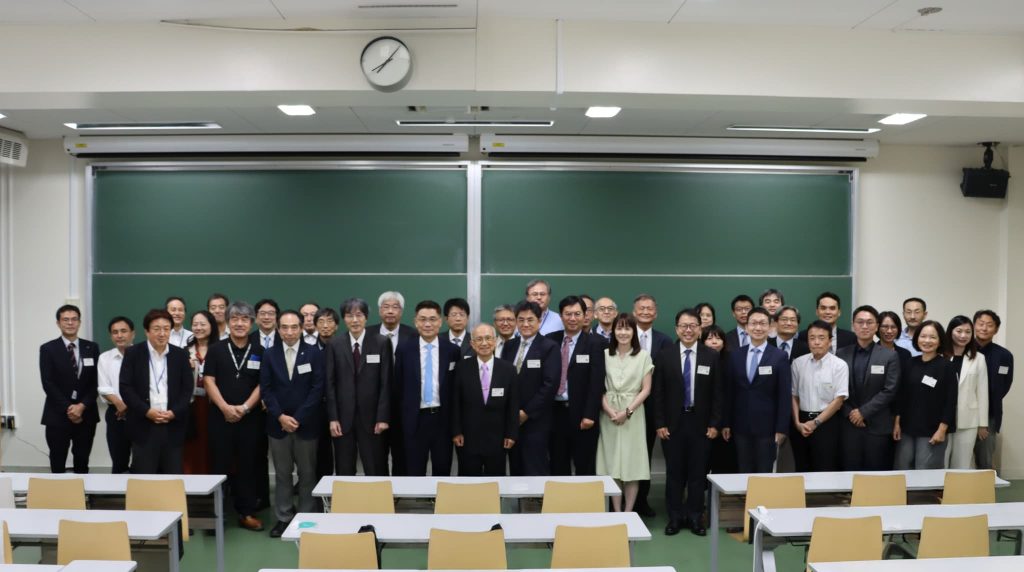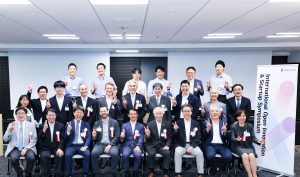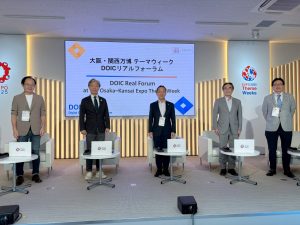Science Tokyo hosted the NCKU and Science Tokyo Technical Forum Summer 2025 – Advancing the Future through Semiconductor and Medical Innovation – on September 4 and 5 at its campuses, in collaboration with National Cheng Kung University (NCKU) and the government-affiliated Taiwan Semiconductor Research Institute (TSRI).
Since the signing of a cooperation agreement (MOU) between National Cheng Kung University and the former Tokyo Institute of Technology in 1997, the two universities have jointly organized annual forums with industry participants, focusing on semiconductor integration technologies.
Building on this history, in 2024 the three parties—Science Tokyo, NCKU, and TSRI—signed a comprehensive MOU under the leadership of the Organization for Co-Creation of Industry and Academia to promote broader industry–academia collaboration in semiconductor-related fields.
Against this background, the 2025 forum not only deepened existing exchanges in the semiconductor sector but also responded to NCKU’s request to expand collaboration in the medical field. With the support of the Medical Innovation Organization, the forum aimed to initiate new partnerships in cutting-edge areas such as medical–engineering collaboration.
From NCKU and TSRI, a total of 23 participants attended, including President Meng-Ru Shen and other senior executives as well as experts in medical and semiconductor research.
On September 4, a plenary session featuring keynote speeches on both medical and semiconductor topics was held at the Ookayama Campus. On September 5, parallel specialized sessions were organized: the medical track at the Yushima Campus and the semiconductor track at the Suzukakedai Campus.
Through these programs, the forum successfully utilized all three of Science Tokyo’s campuses to foster large-scale academic and industrial exchange over the two-day event.
Event Summary Report
September 4 (Wed.) – Workshop (Ookayama Campus)
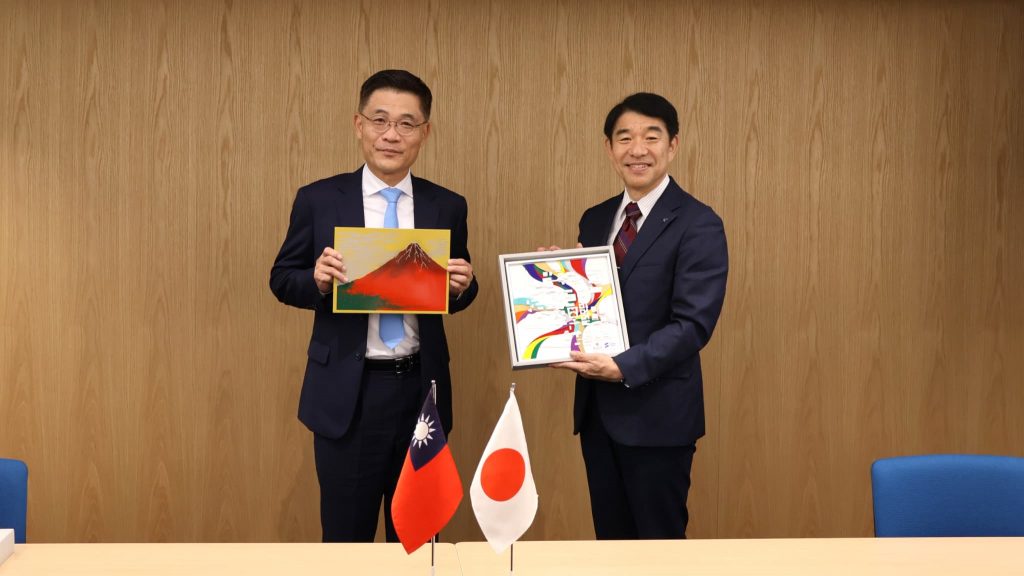
Plenary Keynote Session
In addition to the 23 participants from Taiwan, approximately 50 attendees—including members of Science Tokyo and representatives from partner companies—joined this session.
Following opening remarks by Chief Executive Officer Naoto Otake of Science Tokyo, President Meng-Ru Shen kindly delivered the opening address, after which four professors from Taiwan and four professors from Science Tokyo each gave presentations.
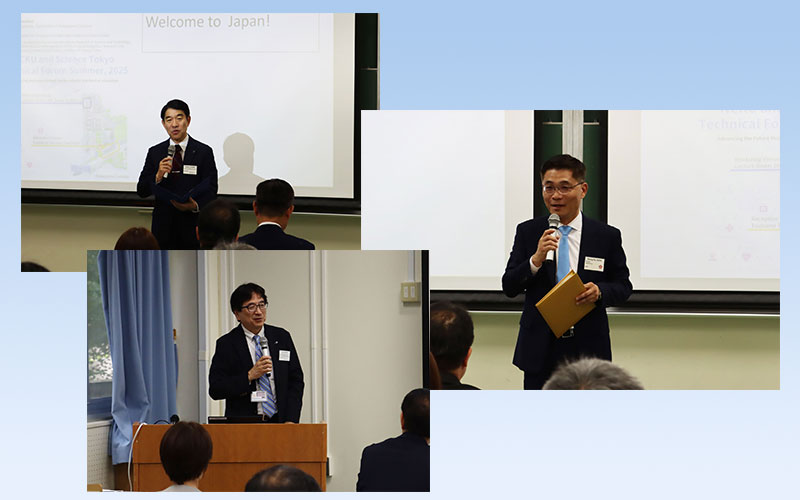
Lecture 1
Prof. Jenn-Jier Lien (Vice Dean of the College of Electrical Engineering and Computer Science & Founding Director of the University-level Smart Sports Center) delivered a presentation titled “The Cloud Thinks, the Edge Acts: Computing for AI Robotics”, introducing the latest technologies in AI-powered medical robots and autonomous mobile robots.
Lecture 2
Prof. Yan-Kuin Su (Dean of AISSM – Academy of Innovative Semiconductor and Sustainable Manufacturing) presented “Development of Semiconductor Technology and Industry”, outlining the historical development of semiconductor technology and its future prospects.
Lecture 3
Tetsushi Furukawa (Executive Vice President for Institute Strategy & Executive Vice President for Research and Industry-Academia-Government Collaboration) gave a lecture titled “Medical Engineering Collaboration in Science Tokyo”, focusing on Science Tokyo’s unique initiatives in medical–engineering collaboration.
Lecture 4
Kentaro Nakamura (Director of Institute of New Industry Incubation) presented “Quantitative Evaluation of Thin Blood Vessels through Photoacoustics”, introducing a photoacoustic technique for blood vessel assessment with potential applications in the medical field.
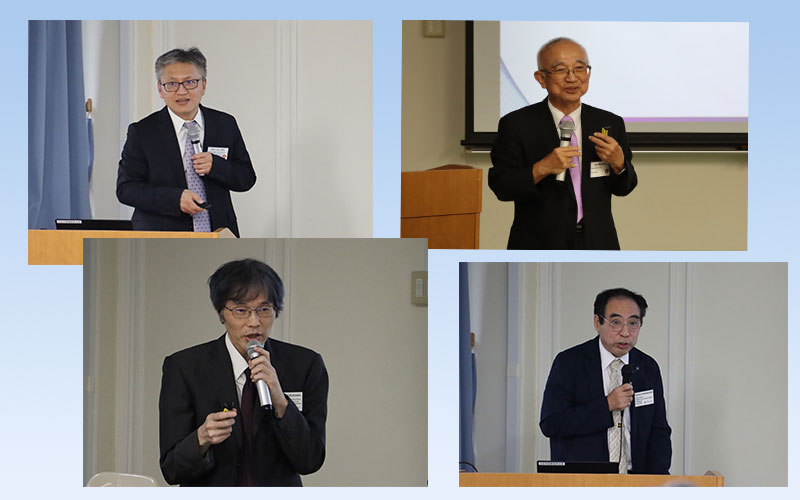
(Top right) Prof. Yan-Kuin Su
(Bottom left) Executive Vice President Tetsushi Furukawa
(Bottom right) Director Kentaro Nakamura
Lecture 5
Dr. Ya-Ting Hsu presented “Leading the Bioelectronic Revolution: Convergent Technologies for Next-Generation Healthcare”, explaining cutting-edge technologies in bioelectronics with potential applications for next-generation healthcare.
Lecture 6
Takayuki Oba (Specially Appointed Professor / Unit Leader, WOW Alliance Heterogeneous Function Integration Research Unit, Science Tokyo) gave a lecture titled “Toward a Sustainable and Connected Era of 3D Integration through Cross-Border Semiconductor Innovation”, discussing the current status and future prospects of 3D semiconductor integration technology based on international collaboration.
Lecture 7
Kazuya Masu (Special Advisor, Science Tokyo; Director, G-QuAT – Global Research Center for Quantum & AI Integrated Technology Business Development, AIST) presented “The Agile Dynamic Era Powered by Semiconductors, Quantum and AI”, focusing on the pivotal role of semiconductors, quantum and AI technologies, and international university collaboration in driving the agile dynamic era.
Lecture 8
Ying-Zong Juang (Deputy Director General of TSRI) presented “Smart Sensing Heterogeneous Integration Platform”, introducing a smart sensing platform that integrates various sensors with semiconductor circuits.
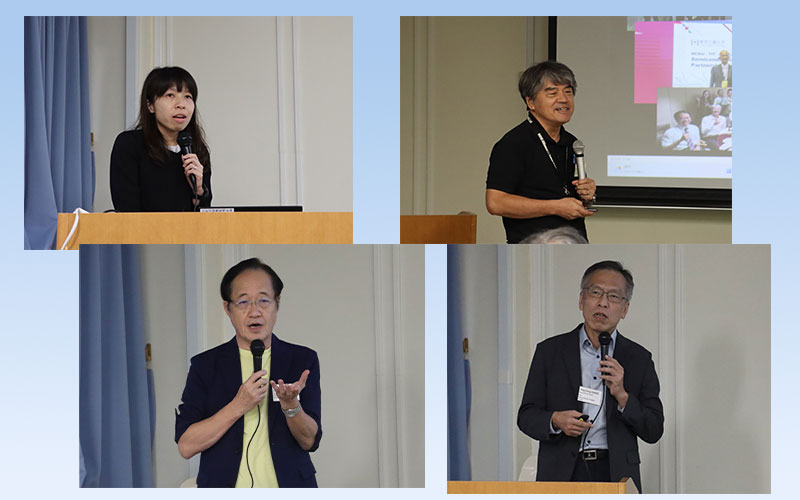
(Top right) Specially Appointed Professor Takayuki Oba
(Bottom left) Kazuya Masu, Director of G-QuAT
(Bottom right) Dr. Ying-Zong Juang
September 5 – Medical Session (Yushima Campus) & Semiconductor Session (Suzukakedai Campus)
Medical Session (Yushima Campus)
Semiconductor Session (Suzukakedai Campus)
Through this event, we have taken the first step toward promoting international industry–academia collaboration not only in the semiconductor field but also in the medical field, including the initiation of joint research projects with Taiwan.
Building on this momentum, we will further strengthen collaboration and actively advance its development in the years ahead.
